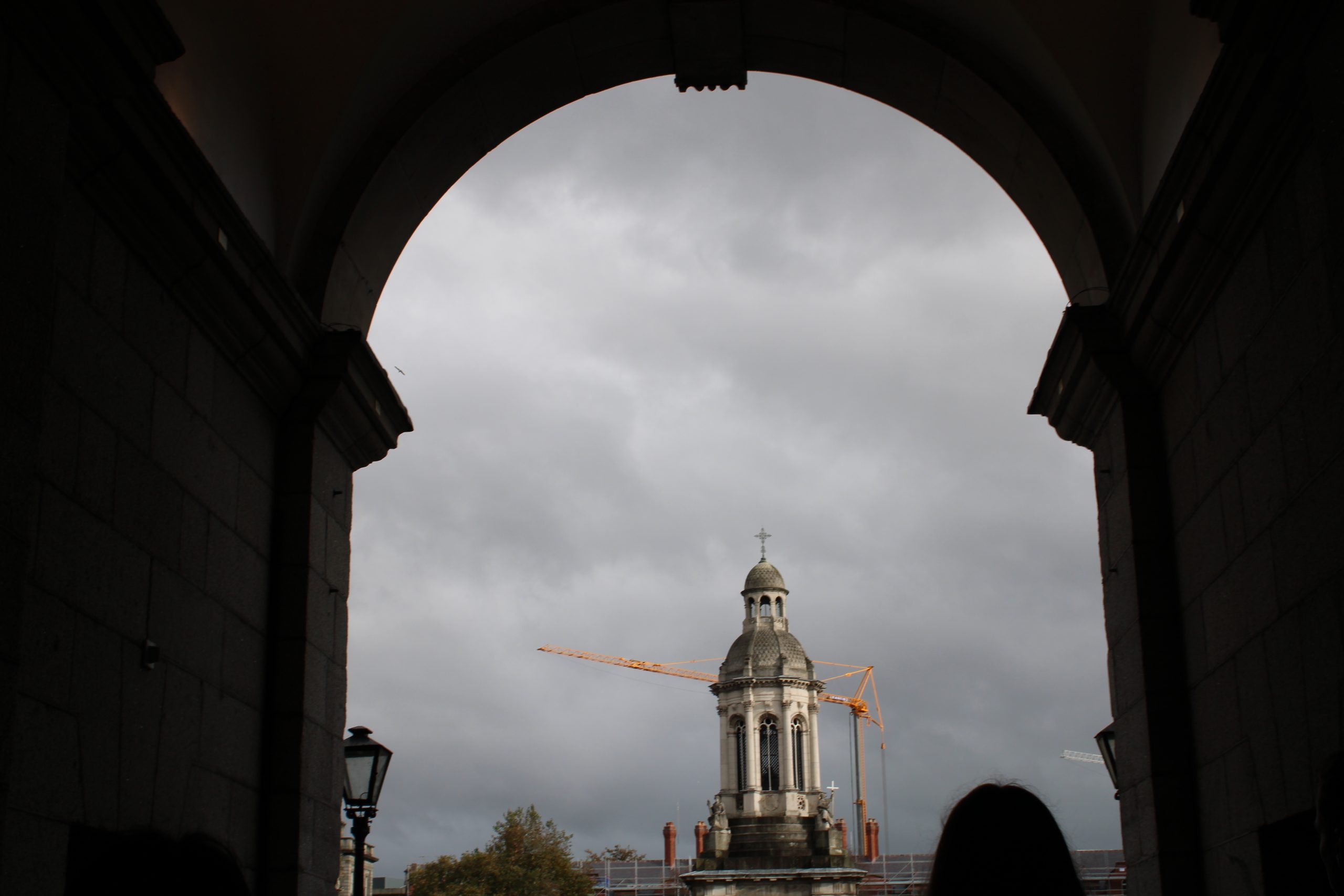For the past two weeks, the Irish media has detailed the shortage of accommodation for refugees arriving in Ireland. This shortage problem is about to get significantly worse as there are currently 365 hotels in Ireland whose contracts to house Ukrainian refugees will expire between now and Christmas. The news of this particular accommodation crisis has unfortunately led to the hashtag #IrelandIsFull trending across various social media platforms. It is the view of this newspaper that the belief that Ireland is full is fundamentally wrong. Ireland is not full, it’s derelict.
Against the backdrop of the cost of living and housing crisis nationally, the idea of Ukrainian refugees, or any migrants for that matter, coming to Ireland has become simply unacceptable to a faction of Irish society. We have seen the growth of movements like “house the Irish first” and the broadcasting of xenophobic views on a national scale, including in our media. What this faction fails to consider is that the majority of refugees are not being housed in properties that would have been readily available to Irish citizens but rather in hotel rooms with limited facilities. The same hotel rooms currently house hundreds of homeless people. The unsustainable model of hiding people without homes in temporary accommodation is only a symptom of Ireland’s failed housing policy. It speaks to how derelict this country is as a result of years upon years of unsustainable policies. Just look at Direct Provision, Ireland’s treatment of refugees is nothing to be proud of. The #IrelandIsFull movement is nothing more than a xenophobic excuse to blame poor housing policy on migrants and refugees.
There are currently over 180,000 derelict or vacant residential properties in Ireland, with 37,000 in Dublin alone. According to Dublin City Council’s housing manager Cóilín O’Reilly, 665 homes in the city centre have been long-term vacant since 2017. It is clear that Ireland is not only not creating sustainable housing, it’s not using the space it already has. Instead, we are at the mercy of developers and vulture funds that government continues to inexplicably cater to. Whether it’s morals, economic concerns or environmental beliefs, we can all agree that this current housing model in Ireland is unsustainable. Accommodation is being built for the purpose of surviving, not living. Until the pandemic, it looked extremely likely that co-habitation apartments would be built in the capital. Similar to student apartments, these buildings would have catered to young professionals wishing to live in Dublin without extortionate costs.
Meanwhile, the accommodation that is being purposefully built for students preys upon their financials. Trinity’s own accommodation is consistently raised by around 4% per year, with on-campus accommodation costs being 5% higher than last year. The average increase in the total cost of living in Trinity’s student accommodation for an academic year compared to five years ago is 15.55%. In the midst of a housing and cost of living crisis, Trinity is comfortable with charging students more money for historical buildings that they own. There is simply no excuse for Trinity to keep raising the rent, especially when you consider that we are living through a cost-of-living crisis. Students have had to pick up extra work and deprioritise their studies. Students can barely afford to heat their rooms or buy their groceries; never mind having any real college experience.
Colleges are more aware than ever that students cannot find a place to live, and yet they aren’t interested in protecting their ability to attend College long-term. A vicious cycle has developed where third and fourth-year students retain their accommodation, putting pressure on an already limited supply and making College inaccessible for younger students. It’s an issue of supply and cost, we need more student housing and we need it to be cheaper. Student life is at the core of the culture of any vibrant city, when students are blocked from accessing higher education there are huge knock-on effects on the entire society. Colleges should be making education as accessible as possible and one of the first steps to that is affordable housing. Without it, students are either forced into long commutes or blocked from going to college at all.
Dublin City Council has purchased only 98 homes since 2017 and renovated 48 of them. The very same council has spent that time ignoring the cultural significance of several Dublin institutions such as the Cobblestone, Moore Street, Merchant’s Arch and Fibber Magees, allowing for controversial planning permission for demolition or redevelopment of these areas. To replace the cultural spaces that made Dublin a worthwhile place to live with hotels creates a vicious cycle, all at the expense of people seeking a place to live. The lack of affordable and available housing and the destruction of Dublin’s cultural heritage are symptoms of the same problem. Dublin City Council is focused on non-sustainable spaces such as hotels that can be supported via emergency accommodation contracts. Why would anyone move to Dublin if there is nothing worth moving here for?
Not even ten minutes from Trinity, Aungier Street is dotted with empty shop fronts and apartments. The City Arts building on the quays has been abandoned for ten years. How can a student expect to find viable, long-term accommodation if local authorities have no interest in maintaining what is supposed to be the beating heart of the city? It’s beyond an ineffective use of space.
It is the opinion of this paper that there needs to be a serious shift in how Ireland views housing, and how we view those trying to access housing. Housing is a human right and we, as a country, should start treating it as such. The national origin of the people trying to access housing should not be a factor in how we apply this right. Ireland is far from full; it is a derelict reminder of the failings of housing policies in the last decade.






